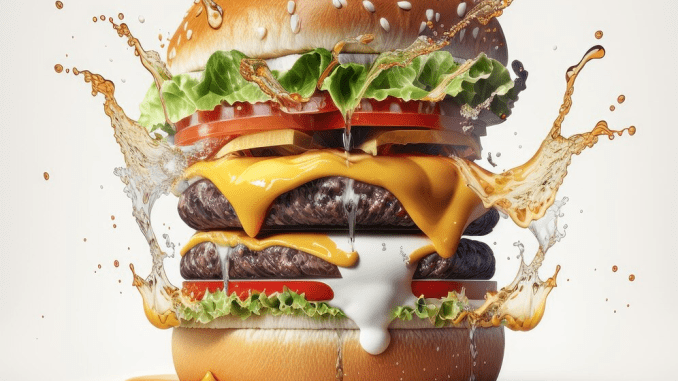
The quality of the food that we eat on a daily basis has become unstable and unsatisfactory lately.
Food inspectors have taken stringent measures against foods that include synthetic substances due to the possibility of dangerous consequences.
It is up to us to recognize which foods are bad and cease consuming them because the market is still thriving with a lot of potentially dangerous and unhealthy food options.
Numerous food items were formerly outlawed because of their harmful contents and possible negative health effects.
A list of all these foods is provided below:
Trans fats
Trans fats, sometimes referred to as partially hydrogenated oils, were historically frequently utilized in processed foods due to their capacity to extend shelf life and improve texture. On the other hand, studies have indicated that trans fats increase heart disease risk by elevating levels of “bad” LDL cholesterol. Denmark was the first nation to outlaw the use of trans fats in 2003. As per the World Health Organization (WHO), from May 2020, best-practice trans fat eradication plans have also been passed by Bangladesh, India, Paraguay, the Philippines, and Ukraine.
Synthetic food
ColoringFood colors that are synthetic are frequently used to improve the color of processed meals and drinks. Certain food colors have been linked in certain studies to hyperactivity in kids as well as possible cancerous effects. The use of food coloring is prohibited in the UK, France, Finland, Norway, and Austria.
Nitrate/Nitrite of Sodium
Preservatives like sodium nitrite and sodium nitrate are frequently found in processed meats like bacon, hot dogs, and deli meats. These substances have the potential to produce nitrosamines, which are recognized carcinogens, when cooked at high temperatures. Although modest levels of sodium nitrite/nitrate are still allowed to be used as a preservative, certain nations have placed restrictions on its usage in processed meats, including Norway, Sweden, Canada, and Germany.
Olestra
Olestra is a fat replacement that lowers the caloric content of some snack items. However, olestra may interfere with the absorption of fat-soluble vitamins and result in digestive side effects like diarrhea and cramps in the abdomen. In nations like the UK and Canada, the use of olestra has been banned as a result of these worries.
BVO, or brominated vegetable oil
Certain drinks, such as sodas with citrus flavors, have brominated vegetable oil added to them to aid emulsify flavorings and keep them from separating. On the other hand, bromine, which is present in brominated vegetable oil, has been connected to health problems like thyroid problems and neurological symptoms. The use of BVO in food and drink has been outlawed or limited in more than 100 countries.
Bromate potassium
A food additive called potassium bromate is used to make dough stronger and enhance the texture of baked foods. But research has revealed that potassium bromate causes cancer in animals and may cause cancer in people as well. Potassium bromate use is prohibited in China, Europe, and Canada.
Ace-K, or acesulfame potassium
An artificial sweetener called acesulfame potassium is used to sweeten a range of foods and drinks, such as sweets, chewing gum, and soft drinks. Despite the fact that acesulfame potassium is safe to use and may even be carcinogenic, certain research have raised doubts regarding its safety.
Remainder of glyphosate
One popular herbicide that is sprayed on crops to suppress weeds is glyphosate. Although glyphosate isn’t used as a food additive in and of itself, it can occasionally be detected in food items, especially those manufactured from crops that are cultivated conventionally. Although regulatory bodies have determined that glyphosate is unlikely to pose a serious risk to human health when used as recommended, certain research have revealed that the chemical may be carcinogenic. Glyphosate is prohibited for usage in residential settings in Belgium, the Netherlands, and France. In Germany, the use of glyphosate is partially prohibited. The only nation in Asia to completely outlaw the chemical’s use is Vietnam.
Excessively processed meals
Although not a particular product, the category of highly processed foods has come under fire because of possible health hazards. A wide range of artificial substances, preservatives, and additives are frequently found in processed foods; some of these ingredients may be carcinogenic or have other negative health effects. Because of this, a lot of health professionals advise against consuming as many highly processed meals in favor of whole, little processed options.
Leave a Reply